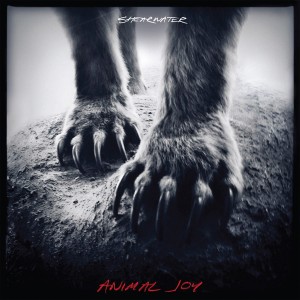Indie-rock band explores a simpler, primal sound
Shearwater, a musically sophisticated band, has thrived over the years on subtlety and carefulness — measuring, controlling and distilling its sound like perfectionists. But now, with its seventh studio album, Animal Joy, the band has attempted to shed the cerebral in favor of the corporeal, relinquishing control for a sound connected more to the natural world and our animal nature.

Simple Shearwater · The on-the-rise indie-rock band takes a more basic approach in its latest release Animal Joy to let its lyrics shine. - Photo courtesy of Sub Pop Records
Animal Joy is a far cry from Shearwater’s last studio album, The Golden Archipelago, the orchestrated, celestial and shimmering final installment of the band’s Island Arc trilogy. Shearwater has scaled back this time around, shaking off an eclectic accompaniment of instruments in favor of a sound that’s minimalist, lean and tinged with primal energy. The absence of chamber-pop elements gives rise to the power of traditional drums, guitar and bass.
The sound is incredibly intricate, layered with haunting melancholy and intensity but without as much of the quiet grandness found in the band’s other albums. Animal Joy is spontaneously energized, and even though the sound is wilder and simpler, there is still a strong shade of old Shearwater meticulousness, especially in the lyrical imagery.
The album starts off with “Animal Life,” a poignantly passionate song filled with a simmering power that never bubbles over. The track rhapsodizes a connection to nature with the lyrics “Cast away like dogs from the shelter / that once collected radiance / Searching at the light’s perimeter / The half-remembered wild interior / Of an animal life!”
The rest of the album remains constant with the pro-nature and anti-construct theme, which draws metaphors about shedding constructed humanity as a snake sheds its own skin, especially with the recurring theme of leaving an old life.
The songs evoke trappings of modern society, such as houses, gates, photographs, batteries and the lottery, representing them as things that distance the human soul from what is truly important.
The jangly, lively “Immaculate” says “You’ll only get a look at your life when you’re leaving it.” And in “You As You Were,” singer Jonathan Meiburg croons more overtly: “You could drive the mountains down into the bay / Or go back to the east where it’s all so civilized / Where I was born to life / But I am leaving the life.”
In spite of the promising direction of the band’s new sound and the layered exquisiteness of “Animal Life,” the album begins to lose potency around the halfway mark.
The remaining songs aren’t bad, but they mostly restate what the first half explores. For instance, “Run the Banner Down” and “Pushing the River” are slow songs with rhythms and melodies that plateau, and on an album that relies on emotive yearning and insightful subtlety, redundancies simply do not work.
The second half of the album is saved by songs like “Open Your Houses,” in which the melody and Meiburg’s voice and lyricism mend a beautifully haunting quality: “I was still life / I was pinned inside of a photograph / When I realized / You had slipped outside of the scenery.”
Despite the album’s dedication to the primal, its appreciation of primitive sound creates a 21st century ode to the earthly: The heartache that comes through the music is rooted in the band’s cerebral nature. That’s not so much criticism as it is an observation; there is something tantalizing about the difficult attempt to connect to primal roots. Animal Joy, perhaps accidentally, highlights how we as human beings are so embedded in our “Roman machinery” and “half-remembered holidays” that we have forgotten how to connect to the natural world.
The true heart of this album lies within its incredible lyrics, a constant the band has preserved through the years. Though it’s not a perfect album, Animal Joy is an intriguing work and a good step in an experimental direction. It’s not as gritty as one would expect a “primal” album to be, but this is Shearwater, after all.
The band is still very much its old self, but now everyone’s a little louder and less tame.
